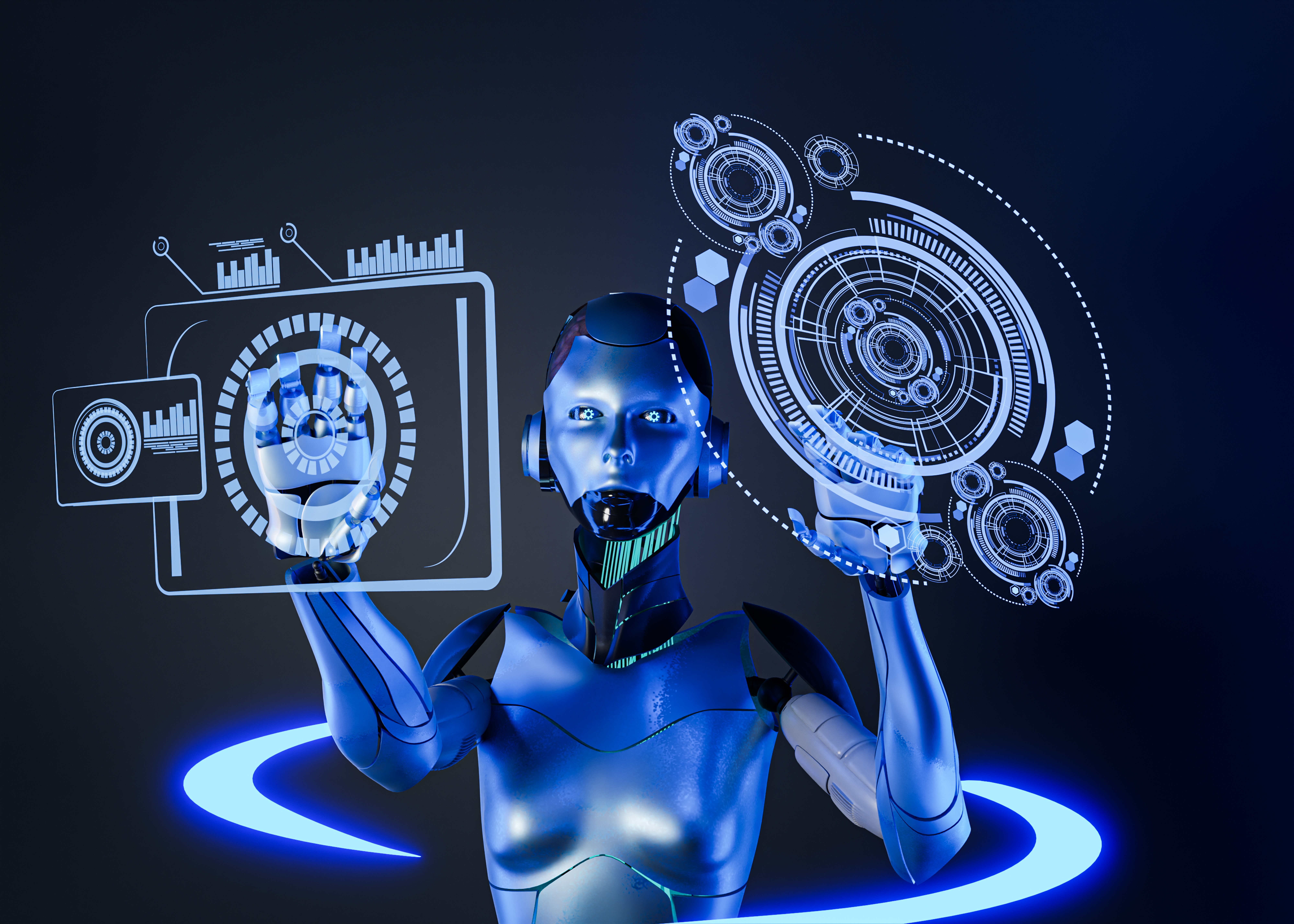Top Artificial Intelligence Skills you Need in 2025
As Artificial Intelligence (AI) continues to reshape the way we work, communicate, and innovate, the need for professionals equipped with essential Artificial Intelligence Skills is growing at an unprecedented rate. From streamlining business operations to driving breakthroughs in healthcare, logistics, education, and finance, AI is now a cornerstone of nearly every industry.
Whether you're a student preparing for a dynamic job market or a professional aiming to stay ahead of technological shifts, building the right competencies is crucial. Developing these skills can not only enhance your career but also position you as a valuable contributor in an AI-powered future.
The Evolving Landscape: Why AI Skills Matter Now
Today’s global workforce is undergoing a rapid transformation, increasingly shaped by automation and intelligent systems. Employers are actively seeking individuals who can apply AI tools and techniques to real-world problems, drive innovation, and support data-informed decision-making.
From foundational concepts like machine learning and data analysis to more advanced areas such as model deployment and natural language processing, Artificial Intelligence Skills are essential for anyone looking to succeed in both technical and non-technical roles.
Whether you aspire to be a data scientist, AI product manager, or an educator integrating AI into teaching, there are multiple ways to gain hands-on experience and grow your expertise—even without a deep programming background.
Why Focus on Skills for AI 2025?
Focusing on the right Skills for AI 2025 is a forward-thinking strategy to stay competitive in the evolving job market. These are the capabilities that will define professional success across sectors. From self-driving cars and smart assistants to AI-powered diagnostics and predictive analytics, the impact of AI is expanding—and so is the demand for skilled professionals.
Organizations will increasingly prioritize candidates who can bridge the gap between advanced AI technologies and practical business needs. This means professionals with applied AI knowledge will be sought after across industries, including marketing, supply chain, education, and finance.
By focusing on Skills for AI 2025, you will:
- Improve your analytical thinking and data-driven decision-making
- Remain competitive in rapidly changing job markets
- Contribute meaningfully to innovation in your field
Discover more: AI Career Opportunities in 2025
Essential AI Foundations Everyone Should Know
Essential AI foundations form the cornerstone of understanding how artificial intelligence works. Regardless of your role or career ambitions, mastering these basics helps you communicate effectively with tech teams, make informed decisions, and spot opportunities for AI-driven innovation.
Key AI foundation skills include:
- Understanding AI terminology, core concepts, and a brief history of its evolution
- Differentiating between supervised and unsupervised learning
- Developing data literacy, including data collection, cleaning, and preprocessing
- Recognizing ethical concerns such as data bias, fairness, and transparency
Whether you're preparing for advanced roles or simply aiming to boost your AI awareness, a strong foundation is critical. These concepts are not only essential for AI professionals but also highly valuable for business analysts, product managers, marketers, and educators.
Get started: AI Fundamentals for Beginners
Must-Have Technical Skills for AI Professionals
Technical AI skills are crucial for individuals seeking to transition into AI-specific roles or deepen their current technical expertise. In 2025, the demand for professionals with hands-on AI development skills will only continue to grow.
These must-have technical skills include:
- Programming Languages: Python (the gold standard), R, and JavaScript for web-integrated AI
- Machine Learning Frameworks: TensorFlow, PyTorch, and Keras for model building and training
- Deep Learning Techniques: CNNs, RNNs, and transformers for complex AI tasks
- Natural Language Processing (NLP): Applications in chatbots, sentiment analysis, and content generation
- Data Engineering: Building pipelines, managing large datasets, and optimizing data flow
Equipping yourself with these skills positions you for high-demand roles such as AI engineer, data scientist, and ML operations specialist. Even non-developers can benefit by understanding the landscape these tools operate within.
Learn more: Advanced AI Certification Programs
Practical Skills to Stand Out in AI Careers
Practical AI skills give you an edge by allowing you to build and deploy usable AI systems. As employers shift from theory to results, those with hands-on experience are leading the hiring charts.
In-demand practical skills include:
- Designing and deploying ML models in real-world applications
- Using cloud platforms like AWS SageMaker, Azure ML, and Google Cloud AI for scalable deployments
- Applying data visualization tools (e.g., Power BI, Seaborn, Tableau) to communicate insights
- Collaborating with diverse teams and stakeholders to align AI with business objectives
Whether you're managing projects or developing tools, being able to build, interpret, and communicate AI systems practically is a standout skill in 2025.
Gain real-world skills: AI Career Paths & Skills
Soft Skills That Complement AI Expertise
Soft skills in AI are more important than ever. As AI technology grows in capability, your ability to interpret, communicate, and lead remains uniquely human and highly valuable.
Essential soft skills include:
- Analytical thinking to assess AI solutions from multiple angles
- Communication skills to explain complex concepts to non-technical audiences
- Creativity to find novel AI applications and improve existing systems
- Adaptability to keep pace with emerging tools and industry shifts
These human-centric abilities elevate your technical knowledge and make you a well-rounded AI professional.
Build these skills: AI Professional Development Resources
How to Acquire These AI Skills in 2025
Learning AI skills in 2025 can be flexible, engaging, and tailored to your pace. Whether you're a beginner or already working in tech, there are multiple ways to grow your skill set effectively.
Ways to learn:
- Enrol in structured online courses tailored to your level
- Complete mini projects to apply concepts in real-world scenarios
- Use free AI tools like ChatGPT, Lobe.ai, and Teachable Machine
- Earn certifications to validate your learning outcomes
- Join communities and read blogs to stay updated with AI trends
Each of these steps helps you build confidence, credibility, and capability in using AI professionally or personally.
Browse: AI Learning Materials & Tools
AI Skill Growth for Students: Building a Strong Foundation
AI skills for students are foundational for entering the workforce with a competitive edge. 2025 students have unique access to beginner tools, gamified learning environments, and AI-focused communities that make learning fun and career-aligned.
Best practices for students:
- Use gamified platforms to explore core AI principles
- Practice coding visually through tools like Scratch and Google Colab
- Join AI clubs or hackathons to gain teamwork and innovation experience
- Discuss ethical implications of AI in school debates or essays
Early exposure to AI empowers students to develop curiosity, confidence, and real-world problem-solving skills.
Explore paths: AI Learning Path for Students
Upskilling for Professionals: Staying Ahead in AI
AI upskilling for professionals is essential for staying relevant in a tech-driven job market. As AI becomes embedded in all fields—from logistics and HR to finance and marketing—knowing how to lead or collaborate on AI initiatives is a top advantage.
Recommended steps:
- Explore subfields like computer vision, predictive analytics, or NLP
- Learn AI applications relevant to your industry
- Partner with tech teams on cross-functional AI projects
- Attend workshops and summits to stay up to date
Upskilling ensures that you remain agile and valuable in a rapidly changing digital landscape.
Find your program: AI Upskilling Programs
Must-Read Blogs & Articles to Boost Your AI Skills
AI blog resources are ideal for staying current with the latest tools, strategies, and trends. Whether you're just starting out or aiming to deepen your expertise, blogs offer digestible, actionable insights.
Top articles to explore:
- Top AI Technologies to Watch in 2025
- How to Transition into an AI Career (Even Without a Tech Background)
- Tips for Using ChatGPT, Midjourney, and Other Tools Effectively
Regularly reading blog content can help you learn how to apply AI in everyday work scenarios and make smarter career choices.
Read more: AI Skills Blog Collection
Final Takeaway: Embrace Lifelong AI Learning
AI in 2025 is not just a tech trend—it’s a lifelong learning opportunity. Whether you’re a student exploring new tools or a professional looking to lead digital transformation, the right mix of AI knowledge, technical proficiency, and human-cantered skills will set you apart.
To succeed, embrace a mindset of curiosity and adaptability. The most valuable AI skills in 2025 will help you:
- Solve real-world problems
- Communicate with impact
- Innovate responsibly in a digital-first world
Start here: Browse All AI Courses












